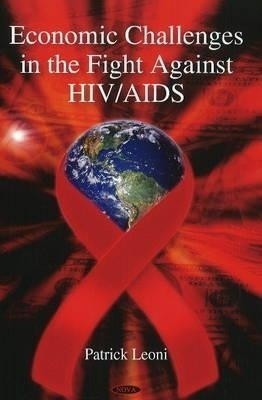Economic Challenges in the Fight Against HIV/AIDS(English, Hardcover, Leoni Patrick)
Quick Overview
Product Price Comparison
The fight against HIV/AIDS is, above all, an economic issue. The scale of the pandemic and the lack of funds needed to eradicate it require identifying key issues in field interventions and optimal economic policies to fund them. In developing countries, where the epidemic is reaching its peak, the magnitude of governmental and international interventions triggers major crowding-out effects on every other economic decision of those countries, and thus HIV/AIDS affects every aspect of social life. Economic policies alleviating crowding-out effects are thus paramount to foster the economic growth of developing countries and, in turn, their future welfare. Economic issues in the fight against HIV/AIDS are also a primary concern for developed countries, in charge not only of subsidising current treatment campaigns domestically but also of funding R&D in innovative treatments. Designing optimal incentives for public and private agencies to reduce the costs of available medicines, and to develop innovative treatments such as a therapeutic vaccine, is as important as drug delivery or any other field campaign to eventually eradicate the disease. Over two decades of practical implementation of economic policies and academic research have shown many pitfalls in current policies, and they have made it possible to identify previously missed issues. This book shall provide a recent and comprehensive coverage of those policies, and it shall analyse their economic efficiency as well as ways of improvement using state-of-the-art academic findings in Economics and Finance. The authors discuss in detail and provide new economic analyses on the following issues: The nation-wide and international economic consequences of the spread of the disease; Market incentives and disincentives to produce and to develop treatment technologies; The nature and optimality of economic policies devoted to fighting the disease in developing countries, as well as the enhancement of current policies through financial innovations.


